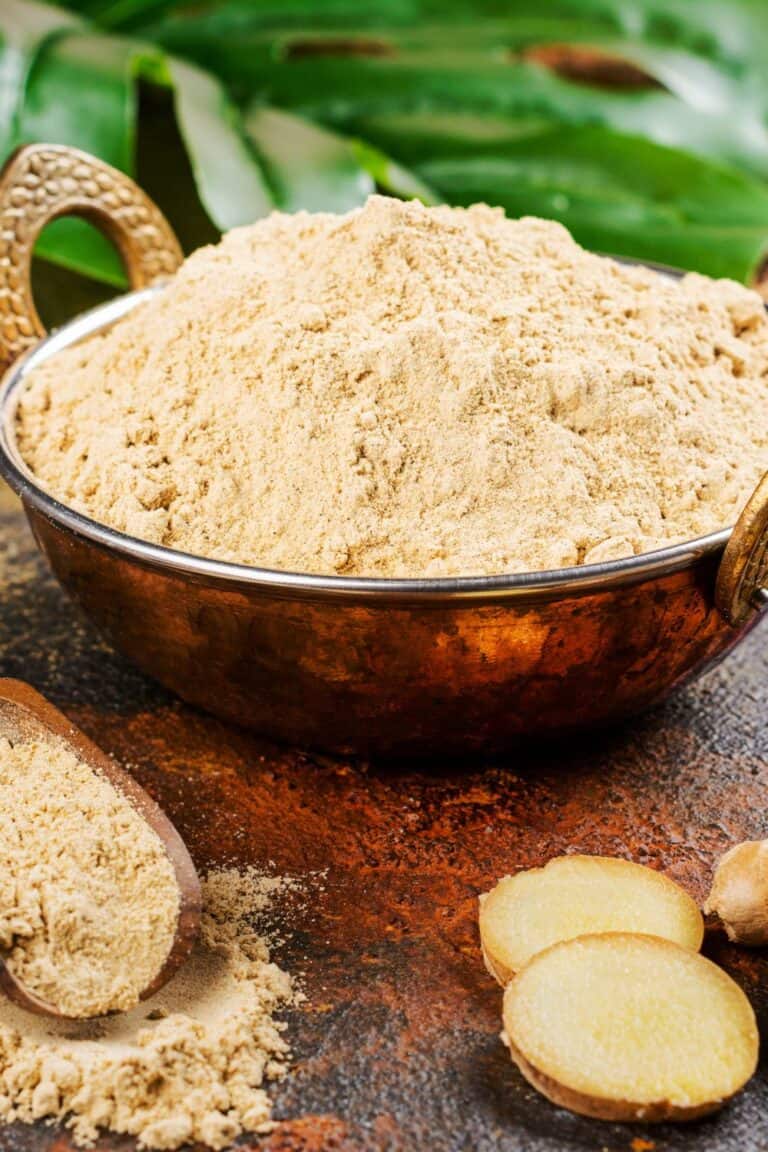Best Accent Seasoning Substitutes: Your Go-To Guide To Umami Heaven
This post may contain affiliate links. Please see my disclosure policy for details.
As someone who loves to cook and experiment with flavors, I’ve been curious about finding the best substitutes for Accent seasoning. Accent seasoning is a popular flavor enhancer that can really boost the taste of various dishes.
However, it might not be available everywhere, or some people may have dietary restrictions that limit their use of this seasoning. As for me, I’m not a fan of using MSG, but I love how it brings a boost of flavor to your dish.
That’s why it’s important to know the top alternatives that can still give our dishes that extra flavor without compromising taste or quality.
In my research, I came across numerous Accent seasoning substitutes that have received rave reviews from home cooks and chefs. Some of the best substitutes are incredibly simple, such as salt, while others involve a combination of herbs and spices to add complex flavors to your dishes.
Keep in mind that it’s not just about replicating the taste of Accent seasoning but more about finding the right balance of flavors that elevate your dish to a whole new level.
So, let’s get started and explore these flavor-enhancing options together!

What is Accent Seasoning and Why Use a Substitute
Just to recap, accent seasoning is a popular flavor enhancer that adds an umami taste to dishes. It is commonly used in both sweet and savory dishes to bring out the natural flavors of the ingredients.
The main component of Accent seasoning is monosodium glutamate (MSG), which is responsible for the umami taste we experience when using it. It keeps you going back for me!
Although Accent seasoning has been a widely used ingredient in many households and restaurants, there have been concerns about the health effects of MSG.
Some studies suggest that excess consumption of MSG may be associated with an increased risk of high blood pressure and cholesterol levels. I even went to school with a girl who was allergic to MSG.
So, due to these concerns, many people are now opting for alternatives to Accent seasoning to maintain a more health-conscious lifestyle.
By exploring other seasonings and flavor enhancers, I can create delicious dishes while being mindful of my health and the health of others.
Herb and Spice Substitutes for Accent Seasoning
Individual Herbs and Spices
When trying to find substitutes for Accent seasoning, there are many individual herbs and spices that can be helpful. I have found that salt is often the simplest and most effective option.
Many recipes that call for Accent seasoning also use salt, so be mindful of the amount of salt when using it as an alternative. Taste as you go!
Other individual spices that could provide a similar taste profile include onion powder, garlic powder, and pepper.
These ingredients help enhance the savory, umami flavor of dishes without needing Accent seasoning or more salt. In addition to those spices, I like to experiment with basil, oregano, thyme, chili pepper, paprika, cayenne pepper, and chili powder.
Remember, each spice brings its unique flavor, so start with small quantities and adjust according to your taste preference.
And a good rule of thumb is to go with spices and herbs you love first.
Herb and Spice Mixes

If you’re looking for herb and spice blends as alternatives to Accent seasoning, I’ve found that some mixes can offer a similar complexity of flavor. Depending on your dish, some wonderful blends include herb de Provence, Italian seasoning, curry powder, and garam masala.
You can also create your custom blend using some of the following herbs and spices:
- Dried oregano
- Granulated garlic
- Turmeric
- Garlic (minced or crushed)
When using these spice blends as Accent seasoning substitutes, start with a smaller amount and gradually increase based on your desired taste.
Mixing and matching spices is a fun and creative way to discover new flavors while keeping your dishes interesting and tasty.
Always remember to keep it friendly while experimenting with different herbs and spices, and I’m sure you’ll find the perfect substitutes for Accent seasoning in no time!
Salt and Salt Substitutes

Different Types of Salt
When it comes to substituting Accent seasoning, there are several types of salt that can be used. These salts not only vary in their source but also in their taste and texture. Let me give you an overview of the different types of salt that can work well as substitutes for Accent seasoning:
- Table salt: This is the most common type of salt, and it works well for enhancing the flavors of any dish. You can easily use it as a substitute for Accent seasoning.
- Sea salt: As the name suggests, sea salt is derived from evaporated seawater. It has a slightly different taste and larger grain size than table salt, making
- Kosher salt: Kosher salt is a coarse-grained salt that is used in the koshering process of meats.
- Himalayan salt: This pinkish salt comes from the Himalayan mountain range and is known for its unique taste and trace minerals. This is a salt I use daily in my cooking.
- Sulfuric Indian black salt: This salt is unique due to its slightly pungent smell and flavor, which is reminiscent of eggs. It works well as an Accent seasoning substitute in dishes with an Indian or Asian flair.
Korean bamboo salt: Also known as “Jukyeom,” Korean bamboo salt offers a unique and slightly smoky flavor. This intriguing salt is made by roasting sea salt in bamboo canisters, creating a complex taste that pairs well with Asian-inspired dishes.
Salt-Free Alternatives
If you are looking for salt-free alternatives to replace Accent seasoning, there are a few options that can still enhance the flavors of your dishes. Some of these options include:
- Herbs and spices: Incorporating different herbs and spices like rosemary, thyme, or paprika can effectively enhance the flavors in your recipes without adding any salt. Reference what I stated above on herbs!
- Broths: Using broths, such as chicken or beef, can add savory flavors to your dishes without relying on salt. For a vegetarian option, try using a vegetable broth. This works great in soups or recipes where liquids are added.
- Citrus juices: The tangy taste of citrus juices, such as lemon or lime, can effectively brighten up the flavors in your recipes without the need for salt.
Remember, it’s important to experiment with different types of salt and salt-free alternatives to find the perfect substitute that works best for your taste preferences and the recipe. Choose the right substitute, and enjoy your delicious, Accent seasoning-free dishes! BOOM!
Umami-Boosting Substitutes
As a home cook, I’m always on the lookout for ways to enhance the umami flavor in my dishes without relying on Accent seasoning. I mean who doesn’t love unami flavor?!
I’ve discovered a few key ingredients and methods to achieve that delicious savory taste – and even some vegan-friendly options!
Umami-Rich Ingredients
One of my go-to substitutes for Accent seasoning is soy sauce or coconut aminos (even Worcestershire sauce can work!). It’s packed with umami flavor, thanks to the rich amino acids it contains. A little goes a long way, so just a splash of one of these sauces can bring you to flavor town.
Mushrooms are another natural source of umami goodness. They’re versatile and can be used in a variety of dishes, from soups to stir-fries. You can experiment with different types of mushrooms, like shiitake or portobello, to find the ones that best complement your recipe.
Fish sauce is an incredibly potent umami-boosting ingredient. If you enjoy seafood, adding a small amount of fish sauce to your dish can really emphasize those savory notes. Just be aware that it has a strong taste, so use it sparingly. For example, start with a teaspoon and add more to taste.
Vegan Umami Options
We all have different diets, and for me, I watch my carbs for medical reasons, and for some, they are looking for vegan-friendly umami options.
One of my favorite substitutes for Accent seasoning is a product called nutritional yeast. It’s packed with protein, vitamins, and amino acids, and has a naturally cheesy, umami flavor. Just a sprinkle of nutritional yeast can add depth to your vegan dishes.
Don’t underestimate the power of vegetable broth as a vegan umami substitute. You can find store-bought options, or create your own by simmering vegetables, herbs, and spices together. A good vegetable broth can form the backbone of many savory vegan recipes, providing that much-needed umami base.
In conclusion, when it comes to enhancing umami flavors without relying on Accent seasoning, there are plenty of versatile alternatives available, both conventional and vegan-friendly. Try these substitutes in your next recipe and experience the savory deliciousness for yourself.
Liquid Seasonings
Broth, Stocks, and Bouillon
My favorite way to replace accent seasoning is by using broth, stocks, and bouillon, especially for soups, stews, and sauces. They’re very versatile as they come in many flavors, such as chicken, beef, seafood, or vegetable.
When I want to enhance the taste of my dish without using Accent seasoning, I replace the water or liquid portion of the recipe with an equal amount of broth or bouillon. That simple!
For example, when cooking rice, I find that using meat or vegetable broth instead of water adds a rich, savory depth of flavor.
TIP: If your recipe already includes meat or vegetables, using a broth or bouillon that matches these ingredients helps to intensify the overall taste of the dish.
My Final Thoughts on Substitutes for Accent Seasoning
So, to wrap things up, Accent seasoning is a well-known flavor booster that brings a delicious umami taste to your meals. However, it contains MSG, which has raised a few eyebrows regarding health effects. But don’t worry, there are plenty of fantastic alternatives out there!
You can try individual herbs and spices like salt, onion powder, garlic powder, and pepper, or dive into the world of spice mixes like herb de Provence, Italian seasoning, curry powder, and garam masala.
There are also many types of salt you can experiment with, including table salt, sea salt, kosher salt, Himalayan salt, and even some unique ones like Indian black salt and Korean bamboo salt.
If you’re looking to cut down on sodium, there are salt-free options too, such as herbs, spices, broths, and citrus juices. And if you’re after that umami kick, soy sauce, coconut aminos, mushrooms, fish sauce, nutritional yeast, and vegetable broth can do the trick.
Lastly, liquid seasonings like broth, stocks, and bouillon can enhance the taste of your dishes without needing Accent seasoning. In other words, you’ve got a whole lot of tasty options to explore! So go ahead, get creative in the kitchen, and find your perfect flavor match. Happy cooking!






